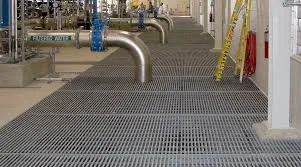
-
 Afrikaans
Afrikaans -
 Albanian
Albanian -
 Amharic
Amharic -
 Arabic
Arabic -
 Armenian
Armenian -
 Azerbaijani
Azerbaijani -
 Basque
Basque -
 Belarusian
Belarusian -
 Bengali
Bengali -
 Bosnian
Bosnian -
 Bulgarian
Bulgarian -
 Catalan
Catalan -
 Cebuano
Cebuano -
 China
China -
 China (Taiwan)
China (Taiwan) -
 Corsican
Corsican -
 Croatian
Croatian -
 Czech
Czech -
 Danish
Danish -
 Dutch
Dutch -
 English
English -
 Esperanto
Esperanto -
 Estonian
Estonian -
 Finnish
Finnish -
 French
French -
 Frisian
Frisian -
 Galician
Galician -
 Georgian
Georgian -
 German
German -
 Greek
Greek -
 Gujarati
Gujarati -
 Haitian Creole
Haitian Creole -
 hausa
hausa -
 hawaiian
hawaiian -
 Hebrew
Hebrew -
 Hindi
Hindi -
 Miao
Miao -
 Hungarian
Hungarian -
 Icelandic
Icelandic -
 igbo
igbo -
 Indonesian
Indonesian -
 irish
irish -
 Italian
Italian -
 Japanese
Japanese -
 Javanese
Javanese -
 Kannada
Kannada -
 kazakh
kazakh -
 Khmer
Khmer -
 Rwandese
Rwandese -
 Korean
Korean -
 Kurdish
Kurdish -
 Kyrgyz
Kyrgyz -
 Lao
Lao -
 Latin
Latin -
 Latvian
Latvian -
 Lithuanian
Lithuanian -
 Luxembourgish
Luxembourgish -
 Macedonian
Macedonian -
 Malgashi
Malgashi -
 Malay
Malay -
 Malayalam
Malayalam -
 Maltese
Maltese -
 Maori
Maori -
 Marathi
Marathi -
 Mongolian
Mongolian -
 Myanmar
Myanmar -
 Nepali
Nepali -
 Norwegian
Norwegian -
 Norwegian
Norwegian -
 Occitan
Occitan -
 Pashto
Pashto -
 Persian
Persian -
 Polish
Polish -
 Portuguese
Portuguese -
 Punjabi
Punjabi -
 Romanian
Romanian -
 Russian
Russian -
 Samoan
Samoan -
 Scottish Gaelic
Scottish Gaelic -
 Serbian
Serbian -
 Sesotho
Sesotho -
 Shona
Shona -
 Sindhi
Sindhi -
 Sinhala
Sinhala -
 Slovak
Slovak -
 Slovenian
Slovenian -
 Somali
Somali -
 Spanish
Spanish -
 Sundanese
Sundanese -
 Swahili
Swahili -
 Swedish
Swedish -
 Tagalog
Tagalog -
 Tajik
Tajik -
 Tamil
Tamil -
 Tatar
Tatar -
 Telugu
Telugu -
 Thai
Thai -
 Turkish
Turkish -
 Turkmen
Turkmen -
 Ukrainian
Ukrainian -
 Urdu
Urdu -
 Uighur
Uighur -
 Uzbek
Uzbek -
 Vietnamese
Vietnamese -
 Welsh
Welsh -
 Bantu
Bantu -
 Yiddish
Yiddish -
 Yoruba
Yoruba -
 Zulu
Zulu
Durable Fiberglass Tanks for Safe and Efficient Liquid Transportation Solutions
The Significance of Fiberglass Transport Tanks in Modern Industry
In today's rapidly advancing industrial landscape, the efficient and safe transportation of liquids is crucial for a wide array of sectors, including agriculture, oil and gas, chemicals, and food and beverage. One of the most significant advancements in this sphere has been the adoption of fiberglass transport tanks. These tanks offer numerous benefits that enhance their practicality and reliability compared to traditional metal and plastic alternatives.
Durability and Resistance
Fiberglass transport tanks are renowned for their exceptional durability. Constructed from glass fibers combined with resin, they exhibit remarkable strength and resistance to corrosion. Unlike metal tanks, which can rust or degrade due to exposure to harsh chemicals or weather conditions, fiberglass tanks maintain their integrity over time. This characteristic is particularly beneficial for industries that deal with corrosive substances, such as chemicals and wastewater. The longevity of fiberglass transport tanks translates into lower maintenance costs and fewer replacements, ultimately benefiting the bottom line of businesses.
Lightweight and Versatile Design
Another significant advantage of fiberglass transport tanks is their lightweight nature. Weighing considerably less than steel or aluminum tanks, fiberglass tanks are easier to transport and maneuver. This reduction in weight increases fuel efficiency during transportation, leading to lower operational costs. Moreover, fiberglass can be molded into various shapes and sizes, making these tanks versatile in design. Whether for bulk liquid transport or specialized applications, fiberglass tanks can be tailored to meet specific industry needs.
Insulation Properties
Fiberglass transport tanks also possess excellent thermal insulation properties. This feature is crucial for industries where maintaining a specific temperature is essential, such as the food and beverage sector or the transportation of chemicals sensitive to temperature fluctuations. By reducing heat transfer, fiberglass tanks help ensure the integrity and quality of the transported liquids, minimizing the risk of spoilage or degradation.
fiberglass transport tank

Environmentally Friendly
The production and use of fiberglass transport tanks are aligned with growing environmental consciousness. Unlike metal, which often requires mining and extensive energy consumption during production, fiberglass materials can be sourced from recycled ingredients, making them a more sustainable option. Furthermore, the durability and longevity of fiberglass tanks mean that they are less likely to contribute to landfill waste compared to traditional options that may deteriorate faster.
Regulatory Compliance
In many industries, adherence to safety standards and regulatory requirements is paramount. Fiberglass transport tanks often meet or exceed stringent regulations set forth by environmental and safety agencies. Since these tanks do not leach harmful substances, they are ideal for transporting potable water and food-grade liquids. Additionally, their construction minimizes the risk of leaks and spills, ensuring compliance with environmental regulations and protecting surrounding ecosystems.
Cost-Effectiveness
While the initial cost of fiberglass transport tanks may be higher than some alternatives, their long-term cost-effectiveness is undeniable. The reduced need for maintenance, more extended service life, and lower transportation costs all contribute to significant savings over time. As industries increasingly recognize the value of investing in durable and reliable infrastructure, fiberglass tanks have secured their position as a smart financial choice for many businesses.
Conclusion
The role of fiberglass transport tanks in modern industry cannot be overstated. Their durability, lightweight design, superior insulation properties, and environmental advantages make them an excellent choice for liquid transport across various sectors. As industries prioritize safety, cost-effectiveness, and environmental stewardship, fiberglass tanks are set to play an increasingly vital role in the future of liquid transportation. Ultimately, the shift towards these advanced solutions reflects a broader trend toward innovation and sustainability in industrial practices, paving the way for a resilient and efficient future. Embracing fiberglass technology is not just a smart choice for today’s operations; it is a strategic investment in the industry’s future.









